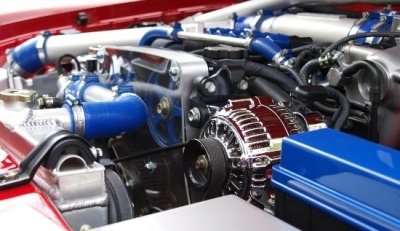Frost & Sullivan’s recent analysis, Global Powertrain Outlook, 2020, finds that global automotive sales are expected to decline by more than 14.2 percent due to COVID-19 by the end of 2020 as manufacturing facilities and supply chains are affected by worldwide lockdowns. However, this slowdown is not expected to have an impact on consumer purchase trends. Demand for diesel engines is expected to decline in Europe by 30 percent by the end of 2020 as Worldwide Harmonised Light Vehicles Test Procedure (WLPT) commences, while global electric vehicle (EV) sales are forecast to increase by about 3.4 percent, spurring demand for gasoline-hybrid and fully-electric powertrains
“OEMs will focus on hybridising existing internal combustion engine (ICE) vehicles as full hybrids have proven to help comply with stricter regulations and have also enjoyed consumer success in recent times,” said Naga Karthik Voruganti, Research Analyst, Automotive & Transportation at Frost & Sullivan.
“Engine downsizing will continue, while the highly efficient gasoline direct injection (GDI) engines will continue seeing an increase in adoption. The integration of gasoline particulate filters (GPFs) and three-way catalytic converters (3WCs) is expected to increase substantially in 2020 with more OEMs seeking to get their gasoline-powered vehicles certified under the new WLTP regulations.”
Voruganti also said mild-hybrid powertrains and the standardisation of exhaust after-treatment technologies, such as selective catalytic reduction (SCR) and coated GPF, are major technology trends that could impact the powertrain industry in 2020.
The growth opportunities in the key regional markets will vary considerably. The main trends and growth opportunities in each key region are presented below:
- The United States: The US is expected to register about 1.13 million electric and hybrid vehicle sales in 2020, an increase of about 4.7 percent, with a majority of the growth coming from Battery Electric Vehicles (BEVs) and mild and full hybrids.
- Europe: European Electric Vehicles of all types (xEV) sales are expected to grow by 5.3 percent, assuming a moderate COVID-19 impact, and EVs alone will have a positive growth of about 27.5 percent.
- China: Vehicle sales are projected to decrease in 2020 due to the unpredictable impact of COVID-19, but EV share is expected to increase from 4.9% of the sales in 2019 to 5.6% in 2020.
- India: Hybrid vehicle sales increased by 75 percent from 2018, which poses opportunities for OEMs to explore the market. Diesel vehicles will witness an increase in prices compared to gasoline due to the stringent norms of Bharath Stage – 6 (BS-VI).
- South Korea: Despite a decline of 1.6 percent in recorded sales nation-wide and the end of the temporary tax cut in August, the Mild Hybrid Electric Vehicle (MHEV) 48V segment enjoyed 283% growth, as sales quadrupled in 2019.
- Indonesia: Car sales improved toward the end of 2019, but due to the sudden and massive impact of COVID-19 on the global supply chain, overall sales are expected to decline by about 17.3 percent in 2020.
- Japan: Although the sales of new passenger cars in the country in 2019 declined by 2.1 percent from 2018, Japanese brands’ sales have increased by 1.9 percent; sales of foreign brands declined by 3.3 percent. Vehicle sharing and the fading appeal of cars among the younger population are trends expected to affect the domestic market in 2020.
For other exclusive articles, visit www.equipment-news.com.
Check these articles out:
Indonesia Auto Market To Remain Stable
Digital Transformation Of Manufacturing To Add US$387 Billion To APAC’s GDP By 2021
Electric Cars May Cost Less Than Gasoline Cars In 2025
Metal Powder Market Forecast To Grow At 3% CAGR Over 2018 to 2028
Global Light Vehicle Market To Decline 17.2 Percent In 2020
Heimatec on Thailand Opportunities and Challenges
Global Auto Sales Rise 4.6% In September
ASEAN Automotive On The Road To Recovery
WANT MORE INSIDER NEWS? SUBSCRIBE TO OUR DIGITAL MAGAZINE NOW!
FOLLOW US ON: LinkedIn, Facebook, Twitter






 16,000 tons of concentrated press force, 1,700 tons of weight and a height of ten meters: The Farina forging press, which thyssenkrupp Gerlach ordered from Schuler in April 2019, is one of the world’s largest mechanical systems of its kind. Starting in 2021, the GLF 16000 machine will form truck front axles and crankshafts at the Homburg site.
16,000 tons of concentrated press force, 1,700 tons of weight and a height of ten meters: The Farina forging press, which thyssenkrupp Gerlach ordered from Schuler in April 2019, is one of the world’s largest mechanical systems of its kind. Starting in 2021, the GLF 16000 machine will form truck front axles and crankshafts at the Homburg site.